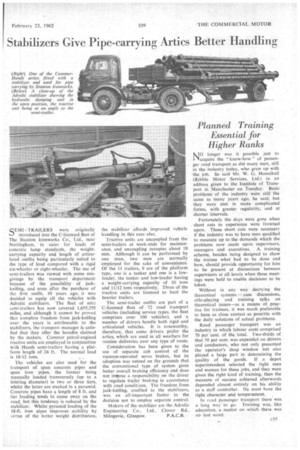Planned Training Essential for Higher Ranks
Page 55

If you've noticed an error in this article please click here to report it so we can fix it.
MO longer was it possible just to 1 acquire the " know-how " of passenger road transport as did many men, still in the industry today, who grew up with the job. So said Mr. W. G. Hannibal! (Ribble Motor Services, Ltd.) in an address given to the Institute of Transport in Manchester on Tuesday. Basic problems of the industry were still the same as many years ago, he said, but they were met in more complicated forms, with greater regularity, and at shorter intervals.
Fortunately the days were gone when short cuts to experience were frowned upon. These short cuts were necessary if the industry was to have men qualified to measure up to the demands which the problems now made upon supervisors, managers and executives. A training scheme, besides being designed to show the trainee what had to be done and how, should provide opportunity for him to be present at discussions between supervisors at all levels when these meetings were held to enable decisions to be taken.
Without in any way decrying the theoretical systems — case discussions, role-playing and training talks on theoretical issues—as a means of practice for trainees, it was much preferable to have as close contact as possible with the daily solutions of actual problems.
Road passenger transport was an industry in which labour costs comprised 70 per cent. of the total. Two-thirds of that 70 per cent. was expended on drivers and conductors, who not only presented the operator's shop window but also played a large part in determining the quality of the goods. If a depot superintendent selected the right men and women for these jobs, and they were given the right kind of training, then the measure of success achieved afterwards depended almost entirely on his ability as a staff controller. He must have the right character and temperament.
In road passenger transport there was a long way to go. Training was, like education, a matter on which there was no last word.












































































































































































